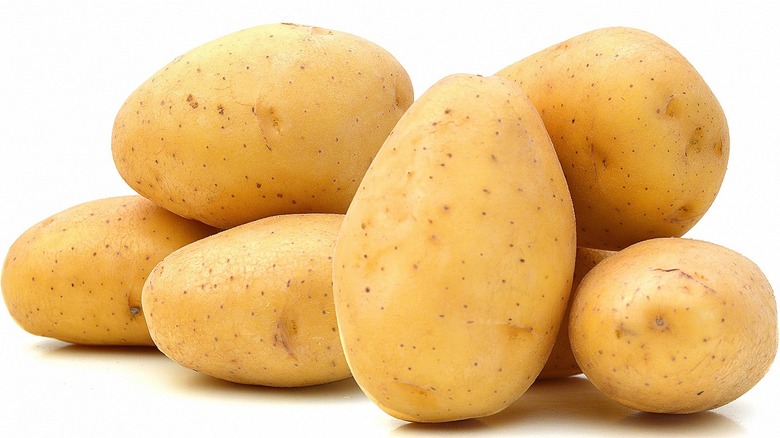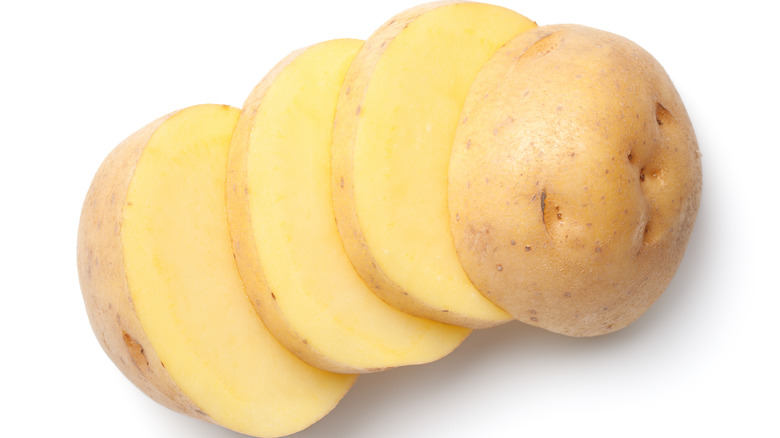Why You Should Rinse Potatoes Before Frying
It's a good practice to ensure vegetables — whether freshly picked from your own home-grown supply or carefully selected from a grocery store — are thoroughly washed before they are enjoyed. Nobody says it has to be anything as sophisticated as bathing them in a scented bubble bath covered with rose petals, but a simple rinse in water is an easy trick to prevent some nasty germs from causing health problems, including the likes of E.coli, Salmonella, and Listeria, per the CDC. In fact, the CDC believes these types of germs are responsible for a vast number of food-related illnesses.
Clearly, safety is a crucial reason why you should wash potatoes before you eat them – even if you're not eating the skin. However, if you're looking to create tasty, fried potato-based snacks, such as fries, chips, and hash browns, there's another important reason why you need to ensure you rinse potatoes. Trust us, it's going to greatly improve the quality of your food.
Rinsing potatoes removes starch
To achieve perfectly crispy potato products, the first thing you need is, obviously, a potato — but certain potatoes are more appropriate than others. Russet or Idaho varieties of potato work best (particularly ones that have been out of the ground for longer) because they contain limited water but plenty of starch.
Paradoxically, it's the removal of this starch that is key to achieving crispiness. The sticky white or gray substance that appears all over your fingers and prep area after you've sliced spuds is starch, and rinsing the chopped potatoes helps to remove it. In fact, washing sliced potatoes removes more starch because a wider surface area gets exposed to the water. Soaking them for several hours in cold water — and changing the water when it becomes cloudy — is a particularly effective trick.
It is essential that starch is removed in order to make crispy potato products. Otherwise, the starch prevents water within potatoes from evaporating during frying, resulting in limp or soggy food. After rinsing them, make sure the potatoes aren't dripping wet before entering the fryer, as this will also impede your aspirations of achieving the perfect fry.

